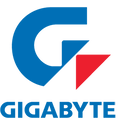
Sony Announces Layoff of 900 PlayStation Employees, London Studio Shuttered
Jim Ryan—President & CEO, Sony Interactive Entertainment—revealed a sobering restructuring plan earlier today: "The PlayStation community means everything to us, so I felt it was important to update you on a difficult day at our company. We have made the extremely hard decision to announce our plan to commence a reduction of our overall headcount globally by about 8% or about 900 people, subject to local law and consultation processes. Employees across the globe, including our studios, are impacted." Ryan's full email—addressed to the entire Sony Interactive Entertainment workforce—can be found here. It reveals that company leadership has decided to close its PlayStation London Studio—the South East UK team is/was reportedly working on an announced "PS5 online game." Microsoft revealed a larger scale layoff program late last month—affecting 1900 employees—albeit without shuttering any major development studios. A number of its California-based teams are in the process of ditching "traditional" office locations (including a former aircraft hangar), and are moving to a work from home (WFH) model.
The SIE chief believes that current circumstances are not sustainable: "These are incredibly talented people who have been part of our success, and we are very grateful for their contributions. However, the industry has changed immensely, and we need to future ready ourselves to set the business up for what lies ahead. We need to deliver on expectations from developers and gamers and continue to propel future technology in gaming, so we took a step back to ensure we are set up to continue bringing the best gaming experiences to the community." His email outlines an "impact for employees across all SIE regions—Americas, EMEA, Japan, and APAC," with reductions affecting native development teams and Firesprite, a Liverpool, UK-based studio (founded by former Psygnosis veterans). Hermen Hulst, Head of PlayStation Studios, also posted a blog entry on the subject of SIE global layoffs—he confirmed a number of reductions and project cancellations.
The SIE chief believes that current circumstances are not sustainable: "These are incredibly talented people who have been part of our success, and we are very grateful for their contributions. However, the industry has changed immensely, and we need to future ready ourselves to set the business up for what lies ahead. We need to deliver on expectations from developers and gamers and continue to propel future technology in gaming, so we took a step back to ensure we are set up to continue bringing the best gaming experiences to the community." His email outlines an "impact for employees across all SIE regions—Americas, EMEA, Japan, and APAC," with reductions affecting native development teams and Firesprite, a Liverpool, UK-based studio (founded by former Psygnosis veterans). Hermen Hulst, Head of PlayStation Studios, also posted a blog entry on the subject of SIE global layoffs—he confirmed a number of reductions and project cancellations.



































































